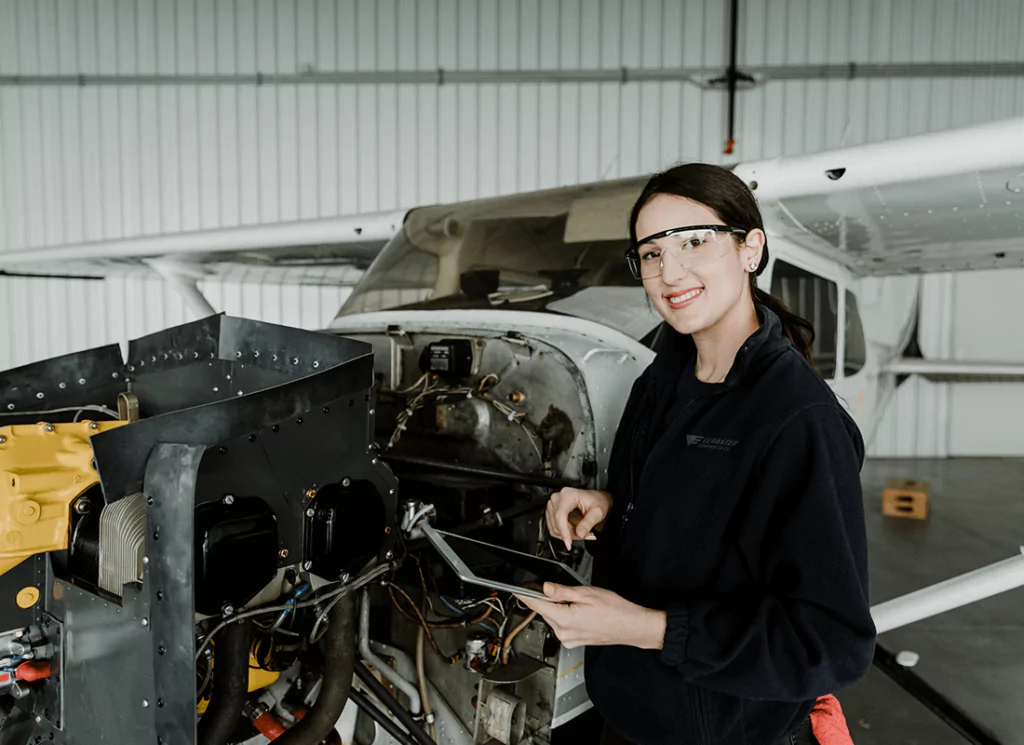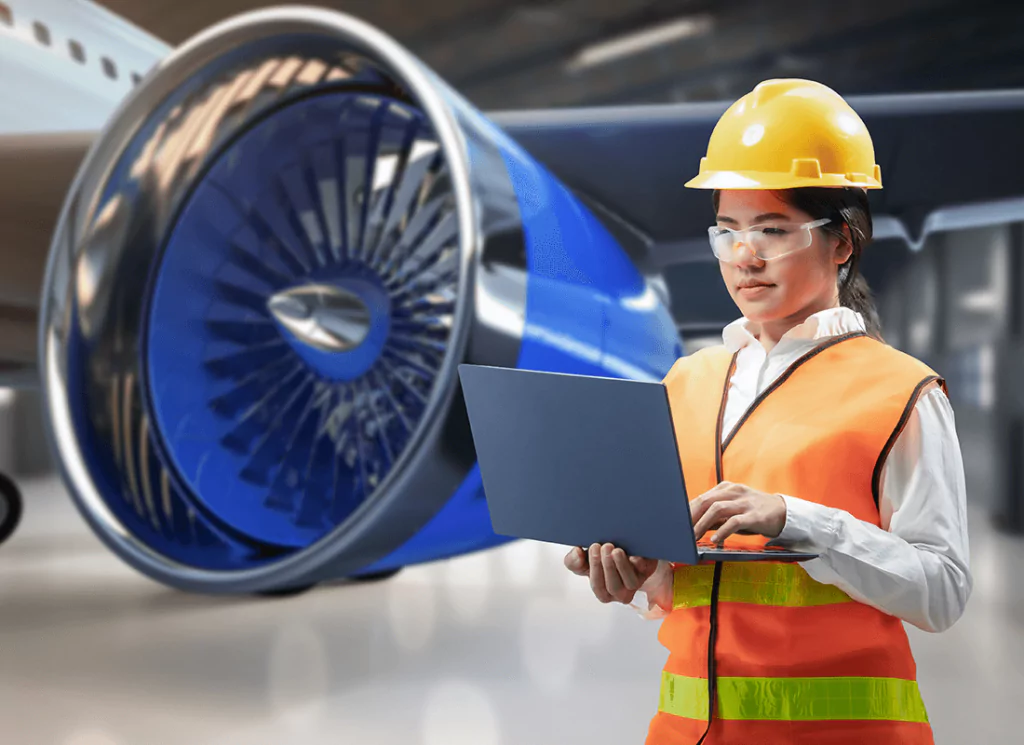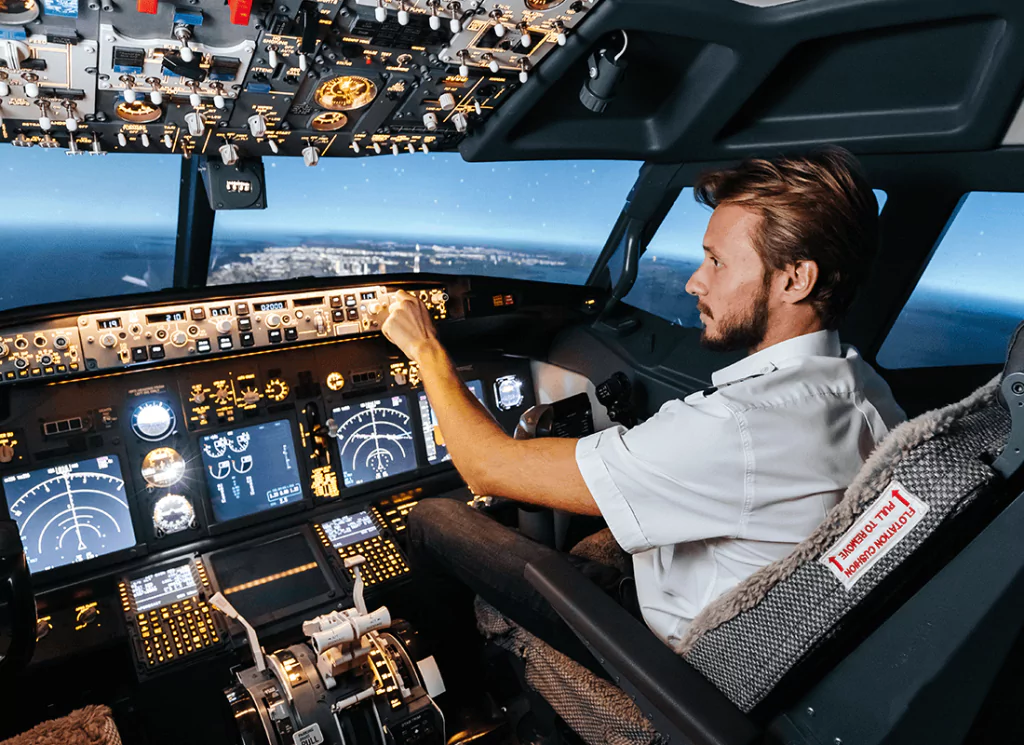
Closing the Skills Gap With Aviation Learning Development
The aerospace and aviation industry is constantly growing and adapting to technological advancements and market dynamics. As the world recovers from the global pandemic, commercial aerospace and defense organizations are also grappling with a workforce characterized by changing demographics and shifting employee expectations.
The aviation industry has faced significant setbacks, including crashes, malfunctions, and mid-flight incidents. Ongoing investigations point to labor shortages, lack of skilled technicians and safety inspectors, and supply chain crises as potential causes of quality control failures. The industry has seen a drain of experienced talent, leading to a skills gap that necessitates training for many junior personnel. Post-pandemic, the aerospace sector experienced a boom in orders, creating peak workloads amidst a labor shortage. Companies are hiring extensively but may overlook crucial training steps, as existing tools are insufficient for ensuring procedural compliance. Effective training is essential to develop the skills of these new hires to meet the demands of increased production.
To stay competitive and meet the challenges, L&D leaders in this industry must support business priorities by defining new and resilient approaches to people, processes, and technology for growth and agility. They need to prepare their workforce for opportunities such as adopting the digital thread, enhancing supply chain resilience, leveraging data science, and focusing on sustainability.

Top Learning and Development Challenges for Aviation and Aerospace Organizations
- Adopting Digital Thread and Smart Factories: In the aerospace and aviation industry, integrating digital thread and smart factories is vital for productivity, cost efficiency, and competitiveness. Learning leaders can drive training in crucial digital technologies like data analytics, IoT, automation, and AI. They can create programs ensuring the workforce is ready for digital transformation while fostering knowledge exchange and teamwork to nurture a culture of innovation and continuous learning.
- Supply Chain Resilience and Agility: Global supply chains in the aerospace and aviation industry demand adaptability and resilience to manage disruptions. Companies leverage technologies like blockchain and predictive analytics for transparency and efficiency. Learning leaders can drive training on supply chain best practices, risk assessment, and crisis management in aerospace and aviation.
- Climate Change and Associated Regulations: As concerns about climate change and air pollution continue to escalate, the aerospace and aviation industry is under increasing pressure to minimize its environmental footprint. Learning leaders can drive employee awareness of aviation's environmental impact and sustainability. They can design programs on carbon reduction, sustainable fuels, and compliance, promoting environmental consciousness through campaigns and workshops.
- Quality Controls and Safety Issues: The aviation industry has faced numerous setbacks, including crashes, malfunctions, and mid-flight incidents, due to labor shortages, a lack of skilled technicians and safety inspectors, and supply chain issues. The post-pandemic boom in aerospace orders has exacerbated these challenges, leading to high workloads and insufficient training for new hires. The loss of experienced talent and inadequate tools for managing team expertise have further compounded the problem. Delivering impactful training is imperative in equipping junior employees with the skills required to adhere to safety protocols and contribute to the industry’s growth.
- Talent Acquisition and Retention: According to a report by Aviation week, the aerospace industry will need to recruit and train 2.3 million new workers over the next 20 years to meet demand and replace retiring workers. By designing professional development programs and career pathways, learning leaders can support efforts in talent acquisition and retention, attracting and retaining top talent. By collaborating with HR and hiring managers, they can identify skill gaps, develop competency frameworks, and tailor learning opportunities for employees at all levels.
- Continuous Innovation for Business Growth: Innovation is vital in aerospace for expansion and competitiveness. Companies invest in R&D for new tech, safety enhancements, and cost reduction. Learning leaders can drive an innovative culture by providing skills and fostering creativity through workshops and collaboration.

Bridge the Skills Gap in Aerospace and Aviation Industry With NIIT’s Learning Solutions
The aviation and aerospace industry have witnessed a revival since the pandemic; however, they are not out of the woods yet. There are several challenges currently that need immediate attention. L&D Leaders need to prepare the workforce to fully embrace the digital thread and smart factories, also address talent shortages to achieve the long-term and short-term business objectives.
We at NIIT, support global aviation and aerospace organizations in creating effective learning ecosystems to address these challenges. From preparing your workforce for climate change regulations to devising sustainable work practices, NIIT’s team can aid you with transformative results. We offer customized services specifically designed for Aerospace and Aviation organizations, such as:
Managed Learning Operations: We understand that your business relies on you to reskill, upskill, and prepare the workforce for the future. We know that L&D leaders in the aerospace and aviation organizations now more than ever require a learning ecosystem that is very adaptable and resilient. NIIT’s Managed Learning Services are designed to deliver value by aligning your L&D goals with business priorities, ensuring measurable business outcomes. Our comprehensive suite also optimizes L&D and efficiency and effectiveness. From learning administration, and learning delivery, to vendor management and strategic sourcing, our services are customized to address your specific needs.
Custom Content for Skill Building: After years of navigating the L&D ecosystem, it’s fair to say that we are a global leader in custom creation, and we offer various learning modalities and levels. For various aerospace and aviation organizations, we have witnessed profound outcomes with cutting-edge instructional design and immersive learning. Whether it’s participating in game-based safety training or gaining new skills in an experiential learning environment, our content experts will support you in delivering measurable business outcomes. We collaborate with your subject-matter experts to ensure that your employees learn in the flow of work. From enhancing leadership and professional skills to developing digital skills like cybersecurity or data science, our content solutions are designed to meet your business priorities.
Cutting-Edge Technology Platform for Learning in the Flow of Work: Our award-winning Learning Experience Platform facilitates highly personalized learning journeys for your workforce. Powered by artificial intelligence, the platform aligns learning with performance to provide analytics, performance support, and real-time performance insights. Each learner can experiment with various kinds of features, such as social and collaborative learning, skills practice, role plays, coaching, and mentoring, to enhance performance and productivity. This platform operates globally across developed and emerging markets, providing multilingual options and offline synchronization.

Case Study: Comprehensive L&D Transformation for a Leading Aeronautical Engineering Company
Challenge: Our customer, a multinational aerospace and defense company, faced challenges due to its decentralized training, which led to cost inefficiencies and inconsistent quality. They struggled with administrative burdens, high fixed costs, redundant training offerings at varying price points, and inconsistent quality of training delivery. There was a need to centralize content and delivery to improve the efficiency and effectiveness of training.
Solution: A partnership with NIIT helped them transition from multiple service providers to a single one, centralize their learning operations, and re-engineer their processes to set up a global process across regions. NIIT also managed the transition of 452 live training sessions in the UK and Central Europe.
Business Impact: The partnership with NIIT led to 100% transparency in learning spend, 25% savings in learning costs, and the delivery of 1500 training sessions across diverse domains. The company also saw a 6%-13% reduction in vendor management costs.
To learn more, download the case study.
Outsource Your Aerospace and Aviation Training & Learning to NIIT
There’s no doubt that the aerospace and aviation industry is facing major challenges, and L&D leaders will need all the help designing innovative solutions. We have supported many organizations till now in this industry in reshaping the learning ecosystem and aligning L&D with business objectives to deliver measurable outcomes. We understand that your organization has unique challenges and needs customized solutions to deliver measurable impact.
Discover how we can support your organization to achieve success with our managed learning services.